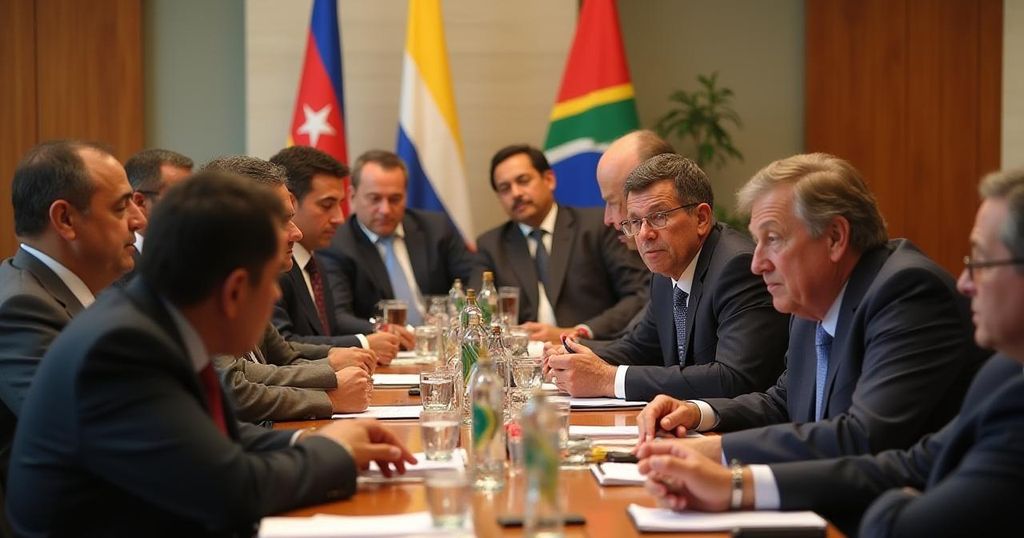Namibia and South Africa Stand in Support of Cuba and Venezuela Amid Economic Challenges

During a recent meeting in Swakopmund, Namibia, the foreign ministers of South Africa and Namibia expressed support for Cuba and Venezuela, condemning U.S. sanctions affecting these nations. They denounced Israel’s actions in Lebanon as violations of international law, called for the removal of sanctions against Zimbabwe, and supported self-determination for Western Sahara in light of recent European Court rulings.
During a ministerial meeting held on October 14 and 15 in Swakopmund, Namibia, officials from South Africa and Namibia expressed their solidarity with Cuba and Venezuela, both of which are grappling with significant economic challenges largely attributed to unilateral sanctions. The Foreign Ministers of Namibia, Peya Mushelenga, and South Africa, Ronald Ozzy Lamola, specifically condemned the long-standing economic, financial, and commercial embargo imposed on Cuba by the United States, calling for its termination. In addition to discussing support for these Latin American nations, the meeting addressed the humanitarian crisis in Lebanon, denouncing Israel’s military actions as violations of sovereignty and international humanitarian law, while urging the international community and the United Nations Security Council to reinforce adherence to international law. Moreover, the ministers called for the immediate and unconditional lifting of what they termed illegal sanctions on Zimbabwe, which they argued are detrimental not only to Zimbabwe’s socioeconomic progress but also to the overarching developmental framework of the Southern African region. Finally, the meeting touched upon the ongoing situation in Western Sahara, applauding the recent ruling by the Court of Justice of the European Union (CJEU) on October 4, 2024, which determined that the European Commission had violated the self-determination rights of the Sahrawi people.
This article addresses a recent ministerial meeting between the governments of South Africa and Namibia, where significant geopolitical issues were discussed. The countries reiterated their commitment to supporting Cuba and Venezuela as they confront economic difficulties exacerbated by unilateral sanctions, particularly those imposed by the United States. Additionally, the meeting highlighted broader regional concerns, including humanitarian crises and the importance of adhering to international law, particularly in relation to the Middle East and Southern Africa. The discussion reflects a commitment to the principles of sovereignty and self-determination, which are echoed in their stance on Zimbabwe and Western Sahara.
In conclusion, the meeting held between the foreign ministers of South Africa and Namibia underscored a profound commitment to solidarity with Cuba and Venezuela against economic sanctions. Furthermore, the ministers’ condemnation of Israel’s actions in Lebanon, the call for lifting sanctions on Zimbabwe, and support for self-determination in Western Sahara illustrate a broader agenda aimed at promoting regional stability and international law adherence. This reflects the growing role of African nations in articulating their positions on global issues, advocating for justice, and supporting their allies.
Original Source: www.plenglish.com








